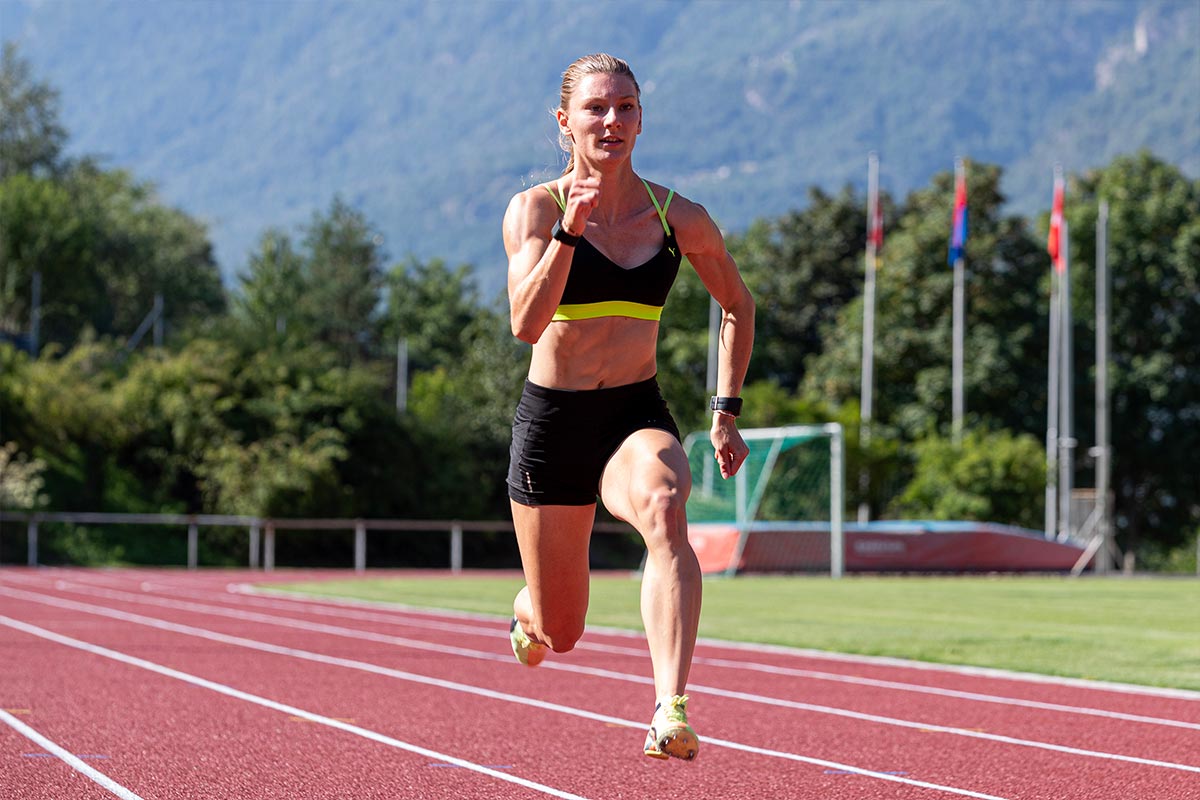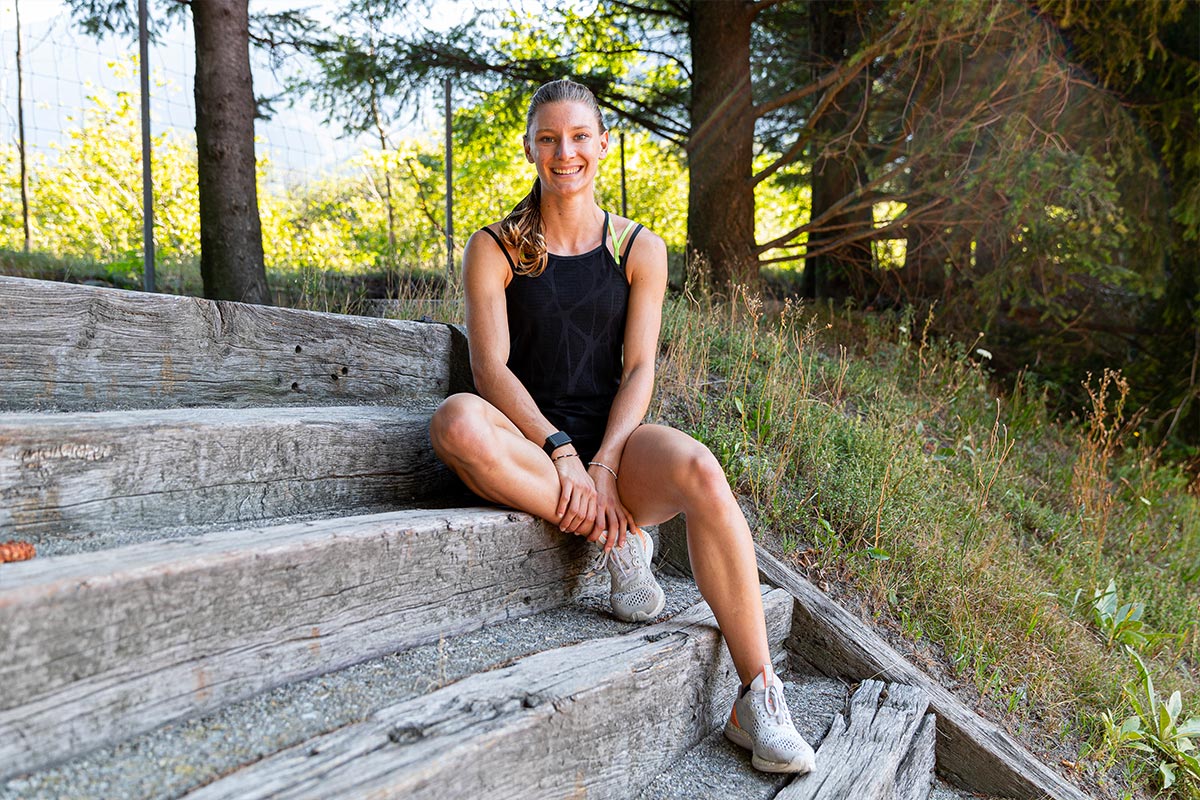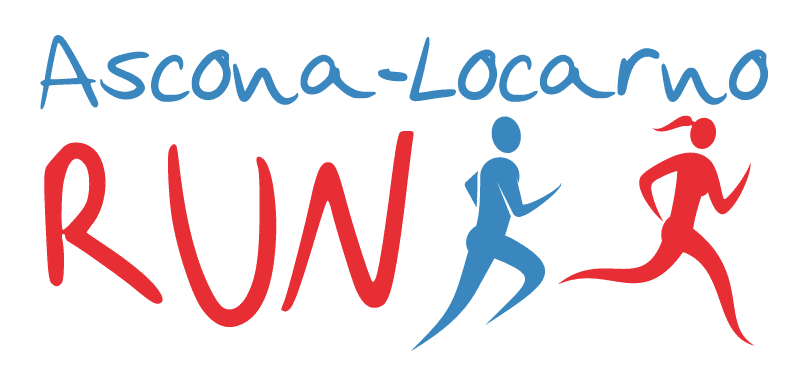© foto Garbani
During the winter months she trained for the Olympic Games in Tokyo 2020 (postponed to 2021). Despite the stop caused by Covid-19, she managed to turn this situation into an opportunity, improving her fitness and performance. Today she trains for these important meetings:
- 14.08 Monaco, Diamond League
- 19.08 Bydgoszcz
- 23.08 Stockholm
- 06.09 Chorzów
- 08.09 Ostrava
- 11-12.08 Basilea, Swiss Championships
- 15.09 Bellinzona, Galà dei Castelli
- 17.09 Rome, Diamond League
Good reading!
Ajla, when did you start running and find out that athletics was the sport?
I remember in elementary school two classmates used to throw running challenges. At recreation for some time they organized a “running school” around the perimeter to run fast. That was my first “approach” to sprinting. It was only several years later, in 2009, that I participated in a Kids Cup organized at school. I ranked fourth throughout the school, and my mom had the idea to sign up for the US Ascona.
Having approached the world of athletics when you were 13, what were the biggest difficulties you encountered?
When starting in an athletics club, coaches tend to let newcomers try out all the disciplines. For me it was clear right from the start that I wouldn’t go towards the endurance ones… every year we were encouraged to take part in at least 3 Cross races, but having finished only one, very far down the ranking and with a lot of suffering, my coaches gave up forcing me to go.
Initially I was more oriented towards jumps, and gradually the sprint results also came. I would say that 2013 was a decisive year from the point of view of results, and it was at that time that I realized I had potential in something.
Was there a time when you thought about quitting sport at a competitive level and focusing on your studies?
During compulsory school I only had two training sessions a week, which was a vital outlet for me. And continuing through high school, it stayed the same. I always had a lot of fun with my group, so it was always natural to go to training.
What were the most exciting moments?
The moments I loved the most are the qualification for my first U20 international championship, all the Swiss individual category records and the Swiss relay records… And of course the convocation for Rio2016.
Do you have any special memories you’d like to share with us?
One particularly nice memory I have is of the World Championships in London2017. Just before the 4×100 qualifying, when we were already behind the starting blocks, the audience started singing “Sweet Caroline” in unison. The English audience is an audience that knows athletics like few others and conveys great emotions to the athletes on the track.
Any anecdotes?
I’ll tell you three:
- In the training camps in South Africa sometimes there are about thirty athletes of different nationalities under the same roof. In addition to having a babel of languages, we are very competitive in board games. In January 2019 we organized a BrändiDog tournament (a team board game played with bridge cards – ed.), and we appropriated the first world championship of this game. At the end of the tournament all the losing teams had to throw in the pool.
- I was always the lowest in the group, and it was a constant reason for affectionate teasing. I always end up with tall teammates.
- At a relay training session one of our teammates arrived without spiked shoes and none of us had a second pair to lend. Having to go to the coach to explain this, she told him that her shoes had exploded during the previous day’s training. The coach dropped the matter and laughed about it a few days later when she showed up to training with her usual spiked shoes.
The second part of the interview will be published in the last week of August.





